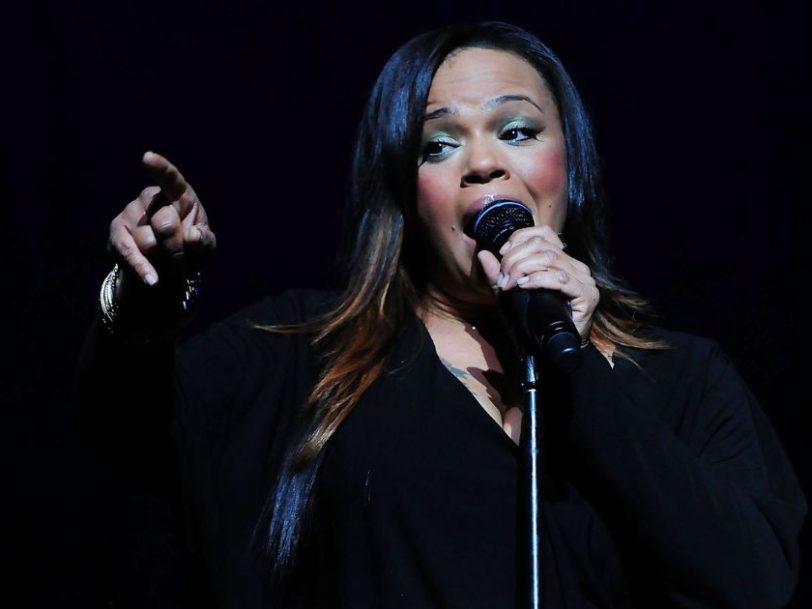Faith by name, faith by nature. Faith Renée Evans has included her first name in no less than five of her eight solo albums, and it was never more aptly used than on 1998’s Keep The Faith. Representing her strongest auteur statement – Evans wrote and arranged virtually the whole album – Keep The Faith was also a reaction to the death of her husband, The Notorious B.I.G.. The hard emotional context of the album lay on a bed of soft soulful pop, creating an enduring classic of 90s R&B.
Listen to ‘Keep The Faith’ here.
The backstory: “Go on, girl! Sing that song!”
Faith Evans, as she revealed in her 2008 autobiography (also called Keep The Faith), first remembers singing for an audience at three years old, at Emanuel Baptist Church in Newark, New Jersey, where she grew up. “‘Sing it girl,’ someone said,” Evans recalled. “I saw some random hands flying up in the air. ‘Go on, girl! Sing that song!’” Little Faith sang the Fifth Dimension song Let The Sunshine In because she had seen Pebbles and Bamm-Bamm, from The Flintstones, perform it. She got a standing ovation, and her performance was so strong that the church immediately wanted her in their choir, despite her very tender years.
As she got older, Evans developed chops and confidence. In high school, she sang with several jazz bands while also appearing at local festivals and singing contests, and as part of the group The Spiritual Uplifters. As her 20s dawned, she began working as a professional backing singer. Her bright-eyed hustle eventually led to a meeting with Sean Combs – then known as Puff Daddy – and a deal with his Bad Boy Records label in 1994.
The love story: “Me and Big holding hands, bustling through the club”
The connection with Combs kickstarted Evans’ career in style. She appeared on albums by Mary J Blige and Usher, and released her own debut, Faith, in 1995. It was also through Bad Boy that she met the man who she was to marry: Christopher Wallace.
The first night they hooked up, Evans knew how magical it was. She had just seen Biggie perform and, despite being swarmed by people desperate to talk to him, his attention was only on her. “It’s one of my favourite memories,” Evans has written. “Me and Big holding hands, bustling through the club with all eyes on us.” Mere days later, Biggie asked Evans to marry him, and they tied the knot in August 1994. “These were heady, intoxicating times,” Evans has said.
Yet the relationship was turbulent from the beginning. “Maybe she won’t admit it, but I will,” Biggie said in 1996. “We should have got to know each other and then got married.” Biggie’s constant infidelity – first discovered by Evans a mere month into their marriage – left her feeling hurt and humiliated. His long-term, semi-public relationship with Lil’ Kim was an especial source of ongoing distress to her. And then, when Biggie’s hated rival Tupac Shakur claimed to have slept with Evans on his 1996 diss track Hit ’Em Up, Biggie too felt that sting of betrayal. The couple became estranged, even as Evans was now pregnant with Biggie’s child.
Writing the album: “I don’t tamper with the creative process”
One of the key aspects of the artistry of Faith Evans is her control and vision. She is singular in how she approaches her work, striving to find herself, no matter what modern trends may be. “You know, I really don’t tamper with the creative process,” she said in 2010. “I’m never influenced just by what’s current or what’s on the radio. Because I don’t really think it would make sense for me to try and do anything other than Faith Evans!”
When the time came to start her second album, Keep The Faith, Evans’ writing was maturing, and her life experiences, from child prodigy to turbulent marriage, had given her plenty of material. As a Christian, and someone who “talks to God a lot”, Evans also started to incorporate more spiritual themes in her writing, and early songs for what was to become Keep The Faith began developing.




